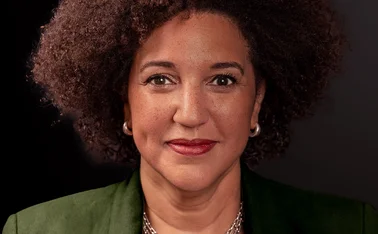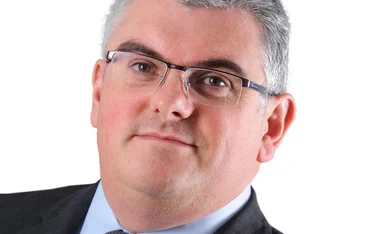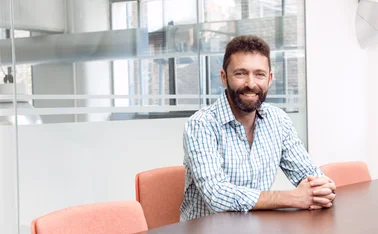
Briefing: Aviva on the money on executive pay

Aviva’s advice on executive pay and corporate governance and responsibility is bang on the money.
“Any pain should start at the top,” Aviva Investors’ global head of governance Mirza Baig advised in a recent question and answer session for the firm’s asset management arm.
Continuing: “We have been communicating that any pay cuts should affect senior management first; whether that means a cancellation or reduction of bonuses, lower future share awards, or even a temporary suspension of salaries. Those measures should come before any scrutiny or decisions about longer-term, wide-scale, redundancies or restructuring.
“The same applies to investors. There is a greater acceptance dividend cuts are on the table before heavy corporate restructuring.”
It’s not that Baig isn’t advising prudence. He continues: “[…] we do not think companies can continue to bleed cash just to maintain an unrealistic or inflated employee base, especially in industries like airlines where structural change is underway.”
In such circumstances he suggests postponing cuts until the economy reopens, “when employees stand a better chance of finding other jobs”.
Or “ensuring equal treatment of employees from different backgrounds or levels of seniority.”
Adding that discussions “should be open, transparent and fair”.
Remaining with the example of the airline sector, Baig warns of potential “future unrest or industrial action” if the situation is not handled with care.
Baig labels annual share incentives the “elephant in the room”.
Continuing: “Several executives were granted future vesting share awards at the height of market volatility and at low points in the market.
“Executives are potentially in line for bumper windfalls – far exceeding the value of any salary and bonuses forgone.”
And adding: “To maintain the same value of awards relative to salary, many executives received a substantive increase in the number of shares compared to previous years.”
This is good advice from Aviva, and it is a relief to see this kind of example being set in an industry in which some players have given us pause for thought.
The insurance industry is not facing up to the same vast structural blows that are hammering away at aviation. This means insurers and larger brokers should be able to do the right thing by their staff and the economy.
Despite this, earlier this month Markerstudy embarked on a consultation to make 478 people redundant, blaming the “significant” coronavirus impact, even as it gears up to buy Co-op Insurance.
It was a move that surprised market watchers, particularly as the insurer had already furloughed 900 people on the government’s scheme, put staff on 80% pay and cut sick pay, according to a report in the Guardian that Post sources have corroborated.
Markerstudy today confirmed to Post that its board of directors have taken a 50% pay cut.
With 70% of Aon’s workforce facing up to a 20% pay cut, Aon CEO Greg Case and others in the executive team have also taken a 50% salary cut, promising no pandemic job losses.
At first glance the reduction and pledge seems like a magnanimous move from Case; less so when you realise the most recent salary data available shows the vast majority (in 2016 an eye-watering $12.6m via stock options) of Case’s annual remuneration comes through additional bonuses and shares. It further struggles to stand up to scrutiny when you note that Aon chose to pay out on a dividend as it clipped its workforce’s pay.
The broking giant is also an employee benefits and ‘human capital’ consultant, making this somewhat concerning.
Aviva, a FTSE 100 company, has itself made no bones about cuts in the past; CEO Maurice Tulloch’s pledge to cull 1800 jobs in a company restructuring last year – splitting life and general insurance –serves as a clear example. By March 2020, 1200 roles had already faced the chop.
However, with a global crisis under way, the insurer is advising and taking the right approach.
Aviva is not the only company in the industry setting a good example (see box below), but what is particularly positive is to see it encouraging others.
I’m reminded of environmentalist Tony Juniper’s speech at the Association of British Insurers’ annual conference earlier this year. Juniper described corporate social responsibility as a very “20th century” approach.
Organisations now need to be “purpose driven,” Juniper urged. His words, levelled at responses to the climate crisis, seem just as relevant to the current pandemic.
Responses to this crisis will show us which industry heavyweights are purpose driven and mean business where it comes to looking after their people, and which are full of bluster.
In mid-May, at the height of coronavirus-related disruption in the UK, UK general insurers were asked how they were approaching pay, remuneration and measures across the workforce.
Will the leadership team be getting (or already have had) an increase in basic pay in 2020?
Direct Line Group: All increases have already been processed and received in April. Our CEO Penny James has donated hers to charity.
Axa: Remuneration for all roles is reviewed every year in March. The usual process was applied this year, before lockdown took effect.
Allianz: Yes. This has already been implemented for all eligible employees, based on 2019 performance in line with our annual cycle.
Aviva: Put basic pay increases put on hold until dividend reinstated.
Have there been any changes to bonuses for the leadership team as a result of Covid-19?
DLG: Given the continuing uncertainty resulting from Covid-19, the group has agreed that executive directors will not be considered for any bonus for 2020 until dividends for ordinary shareholders resume.
Axa: No changes made at the moment. Bonus awards for 2019 were communicated to employees in March before lockdown started, and any bonuses applicable for 2020 will be paid in March 2021 dependent on company and individual performance.
RSA: RSA confirms that its executive directors and executive committee will not receive any cash bonuses for the current year at least until dividend payments are restarted for shareholders.
Bupa: We have no plans at present to change current arrangements for remuneration. As a healthcare company, we’re focused on playing our part in support of the public response to Covid-19. Our focus is on the welfare of people: our customers, our people and the public. Decisions about remuneration are kept under regular review by our board remuneration committee.
Allianz: No, not at this time and no bonuses relating to 2020 are due for payment at this time.
Ageas: The salary increase and bonus paid to all Ageas UK employees earlier this year reflected the business performance and the work they did in 2019.
Aviva: In April it announced executive pay packets would not include a 2020 bonus until the dividend is reinstated.
Have members of the leadership team and board made any pledges relating to their remuneration, for example to donate a portion of it to charity?
DLG: Yes. Our CEO Penny James has chosen to donate her 2020 salary increase to the charity Fareshare.
Axa: Not publicly. But over 400 of our employees have asked to donate their working-from-home allowances to charity and the amount raised in April alone was £10,600 – split across NHS Charities Together and Young Minds.
Allianz: Any such decisions would be a personal and individual choice for the leadership team, which we’re not in a position to comment on.
Have other members of staff faced pay cuts, furloughing or redundancies as a result of Covid-19 disruption? If yes, for each of the stated options: across which areas of the business and how many staff affected?
DLG: No. We have guaranteed colleagues will receive their usual pay regardless of whether their specific working practices changed while working from home. All roles are to be protected through to the autumn. We are not accessing the UK Government furlough or other support schemes.
Axa: We have made no redundancies and no pay cuts during the lockdown as a result of coronavirus. We have also decided not to use the furlough scheme as we believe public money should go to the companies that need it most.
RSA: Our people haven’t had their pay cut, nor are there any on furlough or facing redundancy. This is also true for our support staff and contractors.
Bupa: We have kept all our people on full pay and have not applied for the Government Job Retention Scheme. We’ve redeployed our people to either support public services or in other parts of our own business. Where redeployment is not an option, and our people are not able to work because of government-imposed restrictions, we continue to pay them in full. We’re redirecting resources and people to support the NHS and other public health bodies to play our part in the national response.
Allianz: No employees have been furloughed, been made redundant or faced pay cuts.
Ageas: Ageas has not participated in the furlough scheme or accessed other UK Government financial support during this crisis and has no intention to do so, nor have we made any staff redundant as a result of Covid-19. We have also given our employees support and flexibility to allow them to volunteer for the NHS or other agreed charities.
Aviva: Has not furloughed or made anyone redundant as a result of or during Covid-19.
Only users who have a paid subscription or are part of a corporate subscription are able to print or copy content.
To access these options, along with all other subscription benefits, please contact info@postonline.co.uk or view our subscription options here: http://subscriptions.postonline.co.uk/subscribe
You are currently unable to print this content. Please contact info@postonline.co.uk to find out more.
You are currently unable to copy this content. Please contact info@postonline.co.uk to find out more.
Copyright Infopro Digital Limited. All rights reserved.
As outlined in our terms and conditions, https://www.infopro-digital.com/terms-and-conditions/subscriptions/ (point 2.4), printing is limited to a single copy.
If you would like to purchase additional rights please email info@postonline.co.uk
Copyright Infopro Digital Limited. All rights reserved.
You may share this content using our article tools. As outlined in our terms and conditions, https://www.infopro-digital.com/terms-and-conditions/subscriptions/ (clause 2.4), an Authorised User may only make one copy of the materials for their own personal use. You must also comply with the restrictions in clause 2.5.
If you would like to purchase additional rights please email info@postonline.co.uk







